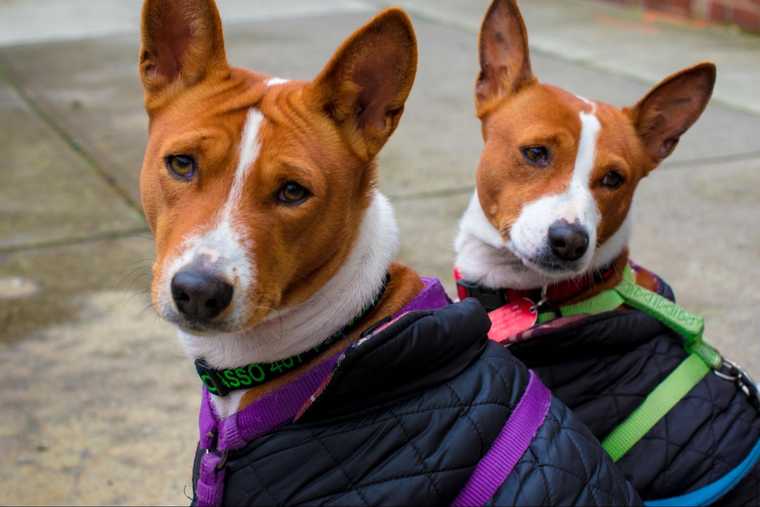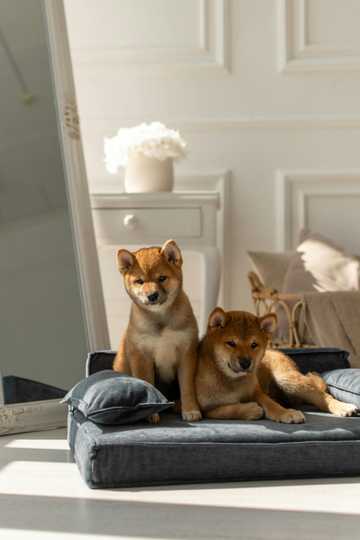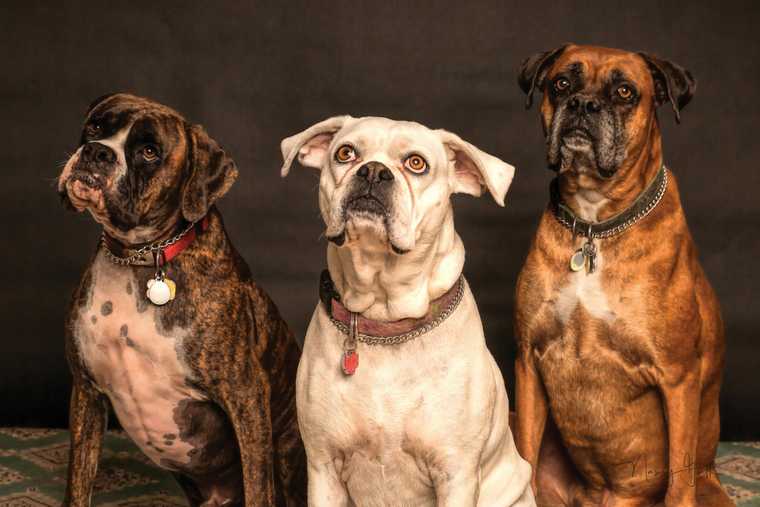Mastering the Meet & Greet: How to Introduce Dogs The Right Way

You have just got a new pet and want to do everything correctly? It's great that you want to make sure everything goes smoothly, as properly introducing dogs is crucial for both the dogs and your own happiness and safety, especially if you already have another dog at home. Hurrying up with the first hello can bring trouble, but a plan prepares the ground for puppy love.
After reading our article, you’ll learn the tips and tricks of how to introduce dogs to each other, bringing them into a totally balanced state.
Don’t know how to start? We recommend installing the Woofz app to get a 10-day personal program to learn how to socialize your pup, teach your new dog to be friendly to others, train commands, and many more.
How to Introduce Dogs to Each Other
Wondering how to introduce two dogs? Introducing pups to each other isn’t as simple as just putting them together and letting them figure things out by themselves. Rushing the process or not managing it properly can lead to fear, anxiety, aggression, and even injury. Let’s discuss what you need to do to properly introduce dogs and make the process as easy and positive as possible.

1. Make a good first impression
Two dogs’ first interaction is very important. Do the first meet as a parallel walk with both dogs on leash on neutral ground to let your furry friends introduce themselves. They will probably gradually move closer together. And then, when they can walk side by side without looking interested, you can drop the leash and continue the guided meetings on a leash in a neutral area.
2. Set the right tone
Dogs feel what you feel with all your energy and body language. That’s why you need to:
- Stay relaxed and confident. If you’re nervous or stressed, the dogs will sense that.
- Talk to them calmly and cheerfully.
3. Give them space
Don't force interactions. Prevent the dogs from greeting each other and let them go at their own pace. Rather than holding them close together, drop the leashes so they can move away if they feel discomfort. Forcing them into uncomfortable positions may cause aggressive behavior.
4. Choose the right time
Prepare the introduction at a time when your dogs seem chilled and exercised. The perfect moment is after a walk or active playtime when they’ve had an opportunity to burn off energy and are relaxed. Also, it’s important to eliminate periods when there are loud noises or a lot of activity in the home that can make the situation more stressful. The less unpredictable or stirred up, the better they will feel.

5. Use positive reinforcement
Through positive reinforcement training, they will learn that being together is great. Keep the interaction light and casual, avoiding direct eye contact and any tension in the leash that could lead to aggression.
6. Supervise closely
Special care is needed on how to introduce dogs – with time and positive conditions, most dogs will be friendly and form close relationships. However, some dogs may never be buddies, and that’s fine. The most crucial part is learning to live in harmony with each other.
From your side, you need to follow basic rules to make the first meeting successful:
- Do not leave puppies alone unattended.
- Control them on the leash first, and be ready to separate them fast if there are signs of aggression, tension, or stiffness in either dog.
- Watch the body language, barking pattern, raised hackles, or other signs.
- Participate in activities both dogs enjoy, such as walks or playtime, to create a bond.
- If you have difficulties, seek advice from a professional. For example, contact our dog assistant using the Woofz app.
Bonus Tips
It’s important to know how to introduce dogs to ensure peace and balance during a smooth first meeting. Here are some recommendations:
- Give the same attention to each dog so there are no jealousy issues.
- Feed the dogs separately.
- Keep a distance from both dogs and don’t feed them until you introduce them to each other.
- If one dog is overly excited, you should do relaxation activities like aromatherapy, calming sounds, etc. Install the Woofz app with all the techniques your furry friend will love.
How to Introduce Dogs When One Is Aggressive
The meeting of dogs, where one of them or both may have aggression issues, must be done carefully to avoid conflicts.

Take the following actions to provide a diplomatic method of managing the safe socialization of dogs.
-
First of all, it’s important to muzzle train a dog for safety and responsible ownership before any other training or introductions to other dogs.
-
You should carefully supervise the introduction if one dog is aggressive, as a fight might start.
-
Select a neutral outside place to avoid territorial behavior.
-
Make sure both dogs are on a secure leash.
-
Place a barrier between the two dogs, controlling their approach from the side, not on the front.
-
Walk them side by side, and don’t let them sniff each other’s noses or touch.
-
Monitor their reactions closely.
-
When an aggressive dog starts to show any kind of negativity, create a larger distance between dogs.
-
Reduce the distance between them slowly when they seem neutral or relaxed.
-
Observe quiet tension signals such as raised hackles or a low growl and separate them gently if necessary.
-
Practice these introductions over a few sessions to assure yourself that these dogs could be off-leash together.

How Long Does It Take Dogs to Get Used to Each Other?
Dogs don’t have a fixed schedule. Depending on their temperaments, past experiences, and how they were introduced to each other, some dogs may take days, weeks, or even months before they accept one another entirely.
When it comes to factors that influence friendship between dogs (such as age, breed, and energy levels), you should consider a few things.
- Individual characters are essential in establishing whether two dogs can become friends.
- Previous incidents can also determine how the dogs will deal with each other, as well as the type of introduction.
If you want to make your dogs friendly, you should take things slowly and persistently, ensuring positive dog relationships while remaining calm and confident. Given enough time and consistency, most dogs are capable of learning how to get on well or even become friends.
Wrap-Up
Put the needed efforts into making your pups successful. Be patient, be optimistic, and allow them to talk. With some time and patience, your dogs will become the best of friends. Proper dog introductions result in years of wagging tails, greetings, and doggy snuggles. So deeply breathe, be steady, and take the first step as a team.
Written by

Woofz Content Manager with a deep passion for dogs and a strong affinity for positive reinforcement training methods.
Reviewed by

Experienced dog trainer with Bachelor of Science Degree in Animal Behavior. Diplomaed dog nutritionist. CFBA Accredited Canine Behaviorist